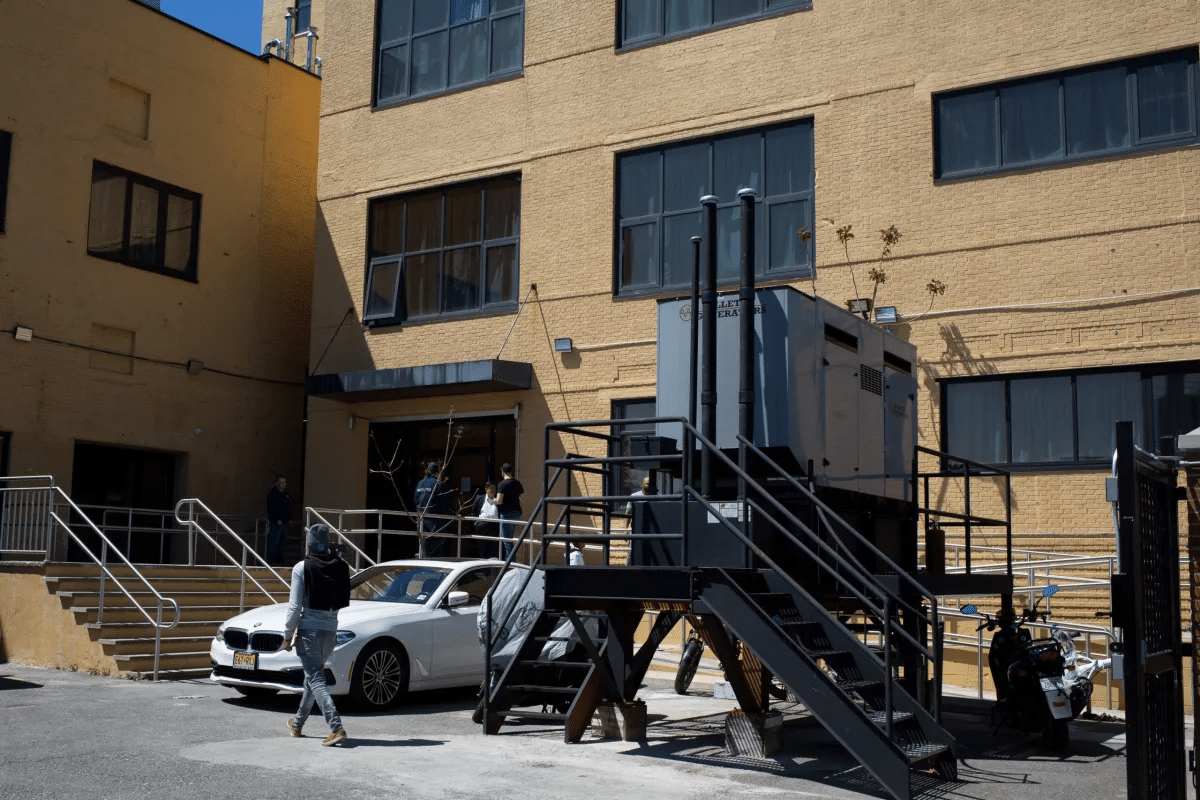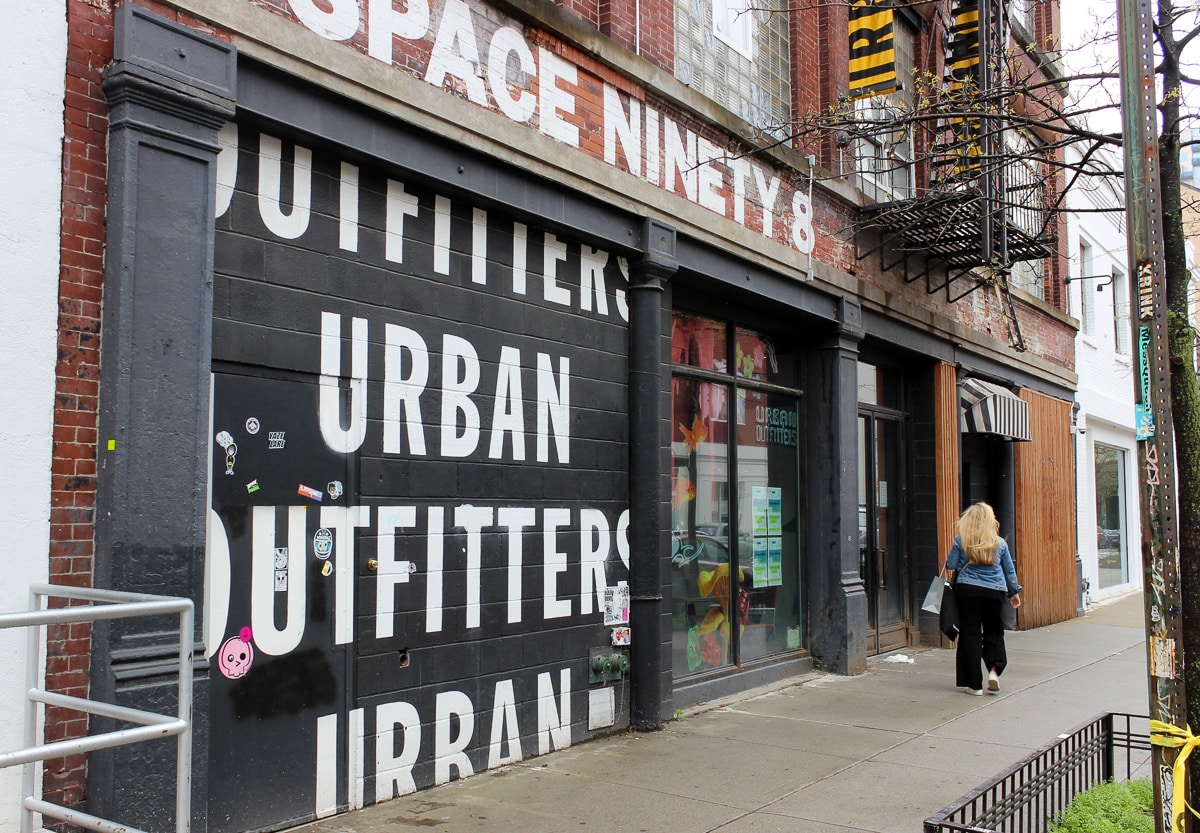A Long Life Reflected in Sofreh’s Dishes
The dishes at the Prospect Heights Persian restaurant were culled from many sources and perfected over a long period of time.

Nasim Alikhani at Sofreh. Photo by Christopher Testani
By the time Nasim Alikhani opened Sofreh, her highly acclaimed restaurant in Prospect Heights that began service in June 2018, she was 59 years old. In her own words, everything up to that point had been part of “a really long life.” She’s not joking. Her background reads like that of multiple people: She went to law school in her native Iran, where she helped cook for her classmates in the cafeteria during the Iranian revolution. Alikhani came to America to continue studying law and eventually got married and had twins. She operated a print shop in Manhattan for eight years, and in her spare time cooked for Iranian families for weddings and events. She started a foundation in Iran, ran marathons, and took up hiking and mountain climbing. On most mornings still, she goes for a swim.
She was also preparing for her future life as a restaurateur. For a long time, food was always in the back of her mind. “Cooking was the only thing that kept me grounded, kept me calm, and kept me really happy,” she says. The dishes at the Persian restaurant were culled from many sources and perfected over a long period of time. “Not only did I open the restaurant and manage to get my dream out of the way, and really live my dream, but I also have grown and am growing continuously every day because of the numerous challenges that come my way.”
The restaurant she always wanted now exists. But that doesn’t mean she’s not still looking ahead. She’s planned out an evolution of the menu for the next three to four years; afterward, she will move on to something else. “I’m done,” she says matter of factly. “That doesn’t mean Sofreh is going anywhere. I’ll find a successor. But Nasim is done.”
I understand the process of opening Sofreh took a long time.
The whole construction took about six years, from the permit point. During the six years, I really, really threw myself into cooking. I had no other projects. Kids were in college. I was getting ready, so I was testing recipes, throwing parties with the sole purpose of feeding people and getting their opinion. Also, during this time, I went to culinary school just for the heck of it, to see what the professionals do. This was the most useless money I’ve ever spent in my life. But it was a good experience because I have the credential and I saw what was done at a typical culinary school. But I didn’t have to spend that kind of money.
What were you trying to do that was different?
I always wanted to do home cooking. I’m very selective about what I put in my stomach and in my body. For all these years, I was disappointed; food was becoming more and more of an industry, more corporate.
Manufactured?
Right. The same concept is being replicated, different chefs doing the same thing. For the last four or five years, I was hardly eating out. Unless, like, some hole in the wall in Jackson Heights, where somebody told me I needed to check out this mom-and-pop place. To me, what is wrong with basic, simple, delicious home cooking? So during the six years that I was waiting for the construction, I really perfected the menu I was going to open the restaurant with. I had no consultants, no PR person. It’s just 20 to 25 years of really careful thinking and planning. I read a lot of cookbooks. I find any interesting chefs and look and see what other masters have done. Also thinking on my own: What do I want to eat?
What do you want to eat?
Essentially it’s the same principles—delicious food, prepared simply, no fuss, just really good quality, a lot of time and attention to detail. And definitely not 50 hands on every plate. To me, that is just so absurd.
What has surprised you the most about running a restaurant?
One thing is that I really had no idea about the industry and the kind of people that are attracted to this industry. I’m talking about those who spend their hours sweating next to the heat and fire. Most of them, from what I’ve seen, they’re extremely passionate people. They love what they do but it’s a brutal job, and it’s a hard, lonely job. That makes it, a certain kind of people who also don’t know how to communicate any other way than through their art. That is the language I didn’t know. Because of my past life—as a mother, as a business owner, as a daughter, as a lawyer—I have a lot of skills outside of cooking. Cooking was my passion; it wasn’t my entire life or my entire livelihood. Being faced with very young people—and they are all very young—with limited life experience, all they know is their craft. It was a big shock and hard to handle.
Was opening in Brooklyn always the plan?
I have always been in love with Brooklyn and I only really looked in this area and Carroll Gardens. I kept circling a few blocks. I didn’t want to be in Park Slope at all, to me it was over in the 1990s.
Do you still have time to cook at home?
You can’t change so many years of how you lived your life. The restaurant is closed on Monday nights, so on those nights, my kids come home or occasionally I have friends over. My home is my sanctuary first, Sofreh comes second. I need home cooked meals.
Editor’s note: A version of this story appeared in the Fall/Holiday 2019/20 issue of Brownstoner magazine.
Related Stories
- Touch of the Unexpected Transports at Greenpoint Mexican Restaurant Oxomoco
- Miss Ada’s Tomer Blechman Rethinks Mediterranean Cuisine in Fort Greene
- Egg’s George Weld Keeps It Local
Email tips@brownstoner.com with further comments, questions or tips. Follow Brownstoner on Twitter and Instagram, and like us on Facebook.









What's Your Take? Leave a Comment